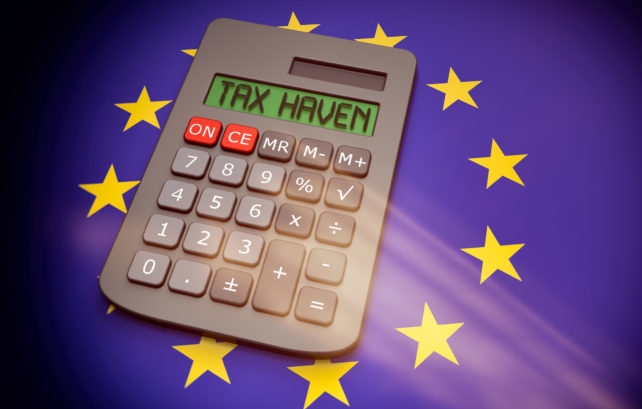“Confusing and ineffective” – these were the words used by MEPs to describe the EU’s list of tax havens, known as the “blacklist”.
The EU uses the blacklist to designate countries which don’t live up to three criteria: tax transparency, fair taxation and implementation of the OECD’S Base Erosion and Profit Shifting minimum standards (Beps).
However, the blacklist has failed deliver to its potential, with jurisdictions on the list responsible for only 2% of global tax losses, writes Rachel Clark, associate barrister at Bright Line Law.
What started as a list of 17 countries has already shrunk to 12.
While that might be seen as a sign of success – showing that countries are cleaning up their acts – MEPs suspect otherwise.
Scrutiny of the blacklist has been spurred on by recent high-profile removals, including the Cayman Islands in October 2020.
Brexit has also drawn attention to the crown dependencies and British overseas territories in their role as offshore tax havens.
What is happening?
On 21 January 2021, the European Parliament responded to these concerns by adopting a resolution to make the process of listing and de-listing countries on the blacklist more transparent, consistent and impartial.
It has recommended that the process for listing countries be formalised via a legally binding instrument by the end of 2021.
It has also suggested automatic listing for all countries with a 0% corporation tax rate, an end to de-listing countries which have only made symbolic tweaks, and taking into account the methodology already employed to designate jurisdictions as “high-risk third countries” (for the purposes of the separate list used to combat money laundering and terrorist financing).
Countries specifically mentioned in the resolution include the BVI, Bermuda, the Cayman Islands, Switzerland, Jersey, Singapore, the Bahamas, Hong Kong and Ireland.
What does this mean for investors and their advisers?
There are three potential long-term impacts:
Increased scrutiny
The first is that it may be harder for investors to invest, and specifically to invest discreetly.
Those seen investing in countries on the blacklist will automatically be treated in the financial investment world as more suspect, whether or not that investment is new or a long-standing arrangement.
They may be subject to increased scrutiny by their local authorities, including local tax audits and investigations.
They may also find it harder to do business.
Banks, and other third parties who conduct customer due diligence, will be warier of onboarding such investors, both from a genuine risk perspective, and a reputational one.
This may make it harder to invest discreetly.
For example, UK entities in the regulated sector (including banks) are already required to conduct “enhanced due diligence” on potential customers established in jurisdictions on the separate EU “high-risk third countries” list.
This means taking a deeper look at those customers, and requiring additional evidence as to their identity, beneficial interests, and source of funds.
Regulated sector entities may consider it prudent to treat potential customers with links to countries on the tax haven blacklist similarly, even in those cases where there is no overlap between the lists.
Restricted investment
The scope for making investments could also be hampered.
Certain entities and institutions, particularly those with EU member state government ties (eg state pensions), may decide not to invest in blacklisted jurisdictions, removing big money players from the scene.
Further, EU grants will also no doubt be diverted elsewhere.
Targeted sanctions
Thirdly, there may be targeted countermeasures.
The European Parliament has indicated that there should be a coordinated approach by member states to sanction those on the blacklist.
Measures in the toolbox could include reinforced controlled foreign company rules, increased withholding, special documentation requirements and even suspension of double tax treaty provisions, amongst others. Investors and their advisers will need to keep ahead of any changes, to ensure they are not unwittingly caught out.
Will it really make a difference?
If new criteria are announced this year, investors and their advisers will need to scrutinise them carefully to consider whether any jurisdictions in which they hold interests may be newly caught.
Investors investing in countries already known as tax havens (despite not being on the EU blacklist) may, in truth, see little to no change.
While the blacklist is influential, it is not the sole measure used by financial institutions and other entities when designing their due diligence and reputation-management policies.
Likewise, government investigative agencies already look wider than the blacklist. If a country has already been treated as a haven, then significant change is unlikely.
The key impact will be felt by those investors holding investments in countries not traditionally perceived as tax havens.
If those jurisdictions are newly added to the blacklist, a change in global perception may be felt very quickly and keenly.
This article was written for International Adviser by Rachel Clark, associate barrister at Bright Line Law.








